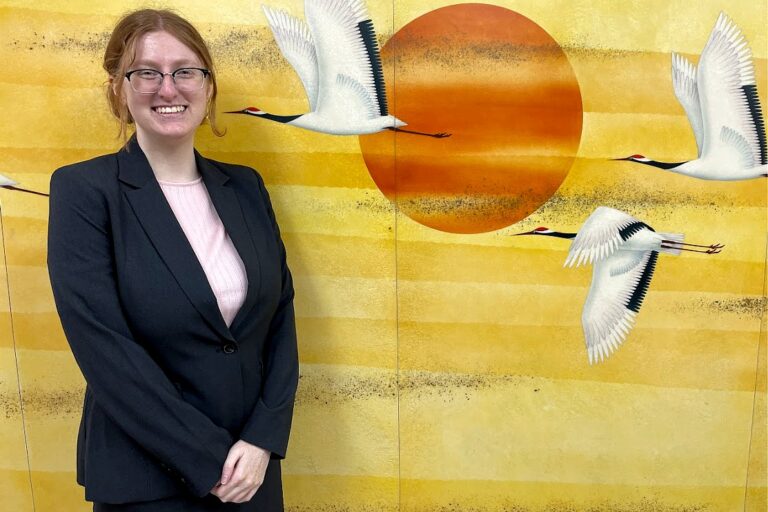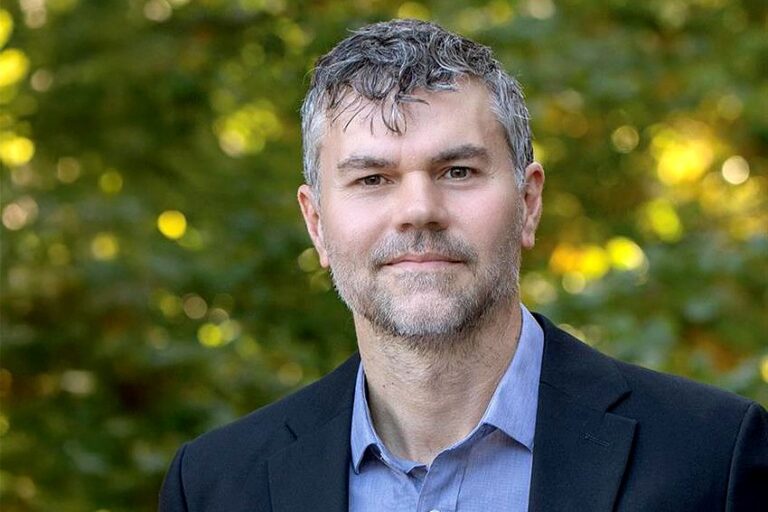
Twelve student projects were selected to each receive $500 CREATE! Micro-Grants to respond critically and imaginatively to events occurring during the COVID-19 pandemic. With the funding, micro-grant winners will craft a variety of works using creative mediums such as film, dance, poetry, song, and oil painting to tackle issues involving race, isolation, body image, language, and more.
“It gives me great hope to see MSU student artists and writers using their practices as active and intentional pathways to social and personal change,” said Divya Victor, Associate Professor of Creative Writing and Transnational Poetry, who founded and organized the CREATE! Micro-Grant initiative along with Professor of Theatre Rob Roznowski. “I appreciate the way many of these proposals come from artists discovering new mediums and methods learned during the pandemic, or to deepen a practice begun as a response to the pandemic. From the shock of the pandemic, our students have discovered a deep capacity for carrying on, both in their work and in their lives.”
Offered by MSU’s College of Arts & Letters and supported by funders from across the University, the CREATE! Micro-Grant initiative is facilitated by the Dean’s Arts Advisory Council (DAAC) to help student artists explore the issues of their generation. Unlike most awards given to students at MSU, the initiative invests in the pure potential of a student’s vision, rather than in the end-product.
It gives me great hope to see MSU student artists and writers using their practices as active and intentional pathways to social and personal change.
Divya Victor, Associate Professor of Creative Writing and Transnational Poetry
“We wanted to offer a source of financial support that sent a clear message to our students: that process matters, that trying matters, that there is room for attempts that fail. Any artistic or literary practice is built on the faith that others place in what you are yet to make,” Victor said. “We want MSU students to know that we believe in that because, as artists and writers in the DAAC, we have lived that truth.”
This is the second year the competition has been held. The first was in 2020.
“In the winning proposals this year, we see that artists have a longer view of the pandemic and are able to represent and analyze personal growth, communal losses, and social changes over a longer arc of time,” Victor said. “In 2020, when we received proposals, we sensed the shock to our collective lives and the grief, fear, and panic that came in its wake. This year, I am seeing more MSU artists and writers keen on discussing growth, healing, adaptation, and communal acts of care and coping.”
This year’s winning proposals were selected from submissions made by MSU students and recent alumni by a group of seven jurors from MSU and the Lansing area.
2021 CREATE! Micro-Grant Winners:

Anusha Mamidipaka, a senior Neuroscience and Psychology double major, will create a 30-minute film documenting art workshops that invited MSU students and community members to express how the pandemic has affected them.
“I wish to interview people of all backgrounds to elevate a diverse set of voices and record the multiple ways communities have been impacted by the pandemic, both positive and negative,” Mamidipaka said.

Jason Dernay, a 2021 College of Arts & Letters alumnus with degrees in Acting and Management, and Nate Davis, a senior majoring in Acting, will follow up with their micro-grant project from last year by re-visiting interviewed artists to see how the pandemic continues to impact their lives and careers.
“We want to serve as a platform to document and amplify marginalized voices,” Dernay and Davis said. “We aim to offer interviews with a diverse field of artists with varying experiences.”

Annie Dubois, a senior Public and Professional Writing major, and Nyle Rosenbaum, a junior Marketing major, will create a multimedia zine that covers shifts in behavior, linguistics, and relationships due to the pandemic and increased isolation.
“This zine will summarize and reflect back to us how individuals changed throughout the pandemic and what implications these changes will have on our culture and social climate at large.” Dubois and Rosenbaum said.

Ben Barber, a sophomore Acting and Game Design double major, and Julia Insoniemi, a sophomore Theatre and Film Studies double major, will collaborate on a short film that tackles themes of isolation, mental health, and the changes facing this generation of young people.
“I believe that subtly is the most effective way to teach morals,” Barber and Insoniemi said. “Concealed in plots and jokes are the hints of how we as artists feel.”

Iliana Cosme-Brooks, a senior Arts and Humanities and Public and Professional Writing double major, will crochet a textured garment that represents the drowning, suffocating feeling experienced by many during the pandemic.
“This garment will be difficult to move in and will cover up most of the body to symbolize how the days have blurred together under the weight of stress and solitude,” Cosme-Brooks said.

Maura Drinkert, a sophomore Music Education and Composition double major, will perform her original song, “Song for the World,” to highlight the isolation brought on by the pandemic.
“Lyrically, the song explores the common sense of fear, anger, and pain that was felt across the human race throughout the course of the pandemic, despite our differences,” Drinkert said.

Mike Gardner, a Studio Art major, will create a compilation of mixed media on canvas, including mediums such as photographs, oil paintings, and handmade stamps.
“I am Black before I am an artist,” Gardner said. “My work exists only to explore the space that I take up as a young, Black Trans person from the inner-city and the issues that come about in that.”

C Widmann, a Digital Rhetoric and Professional Writing master’s student, will expand on their article in MSU’s magazine The Current, which tells the stories of artists who used their work as coping mechanisms for the pandemic.
“I am particularly interested in recording stories from artists who have been using their platforms to create social justice art and protesting through their work, as well as artists who have made a concerted effort towards lifting up other marginalized voices or supporting others besides themselves through their art,” Widmann said.

Julia Rudlaff, a senior Civil Engineering and English double major, will put together a poetry collection that will explore body image and gender identity through the lens of “pandemic bodies.”
“I will be exploring how certain media has vilified our “pandemic bodies” and how harmful the language used and lifestyles promoted can be to people who’ve suffered from eating disorders,” Rudlaff said.

Sloan Lemberg, a junior Marketing major, will create a short dance film inspired by the feeling of longing they felt during the height of the pandemic.
“My artwork will display a generally optimistic approach to our time in lockdown over the past year and few months,” Lemberg said. “It initially addresses the feelings of longing to return to normal life; this could be in relation to a person, place, or even a memory.”

Ally Blovits, an English major, will craft a poetry chapbook, or a collection of about 10-30 free-verse, confessional-style poems centered around themes of mental health and relationships during the pandemic.
“We’ve all dealt with loss this past year; we’ve all had to come to terms with putting what we wanted for our future on hold,” Blovits said. “I want to explore the repercussions of that on an individual basis as well as how it has affected bonds with the people around us.”

Timosha Krivstov, a recent B.F.A. in Apparel and Textile Design alumnus, will use Adobe creative platforms to make a repeating textile design pattern that will reflect on the consequences of global warming and its generational damage.
“My work represents nature’s final plea for humankind,” Krivstov said. “The flowers depicted in the work appear to be melting –– insinuating rising global temperatures –– as they lament in their helplessness to resolve the effects of man-made climate change.”


